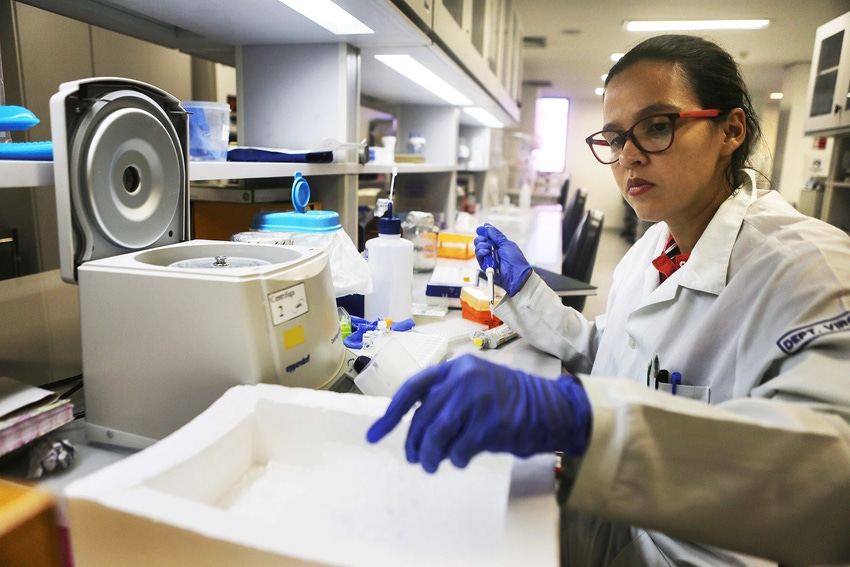
Although the USDA has announced it “does not have any plans to regulate plants” that are created through the revolutionary gene editing techniques that have potential to quickly give farmers crops with a wide variety of desirable traits that might otherwise take decades through conventional breeding methods, it is not likely that heavily-funded anti-GMO organizations will sit on the sidelines and watch it happen.
The CRISPR-Cas9 gene editing method — which allows undesirable genes in a plant to be easily “snipped” out in order to enhance flavor, retard spoilage, make it grow tall instead of drooping, become unattractive to insects or diseases, resist drought, etc. — has taken the agricultural world by storm, just as it has the medical world, where scientists see potential to one day conquer the majority of diseases that now plague mankind.
The big difference is that editing a plant’s own genome doesn’t involve the introduction of genetic material from other species, as with the GMO crops now planted on billions of acres worldwide, and which opponents have painted with devil horns, even though there has been not a scintilla of scientific evidence that they pose any risk to human health.
The new techniques, the USDA says in its announcement, “expand traditional plant breeding tools because they can introduce new plant traits more quickly and precisely, potentially saving years or even decades in bringing needed new varieties to farmers.”
America’s farmers, who have increasingly borne the brunt of consumer disfavor from the fear-based “Frankenfood” campaigns of anti-GMO organizations, have an opportunity through their own organizations and lobbyists to get out in front of image shaping for gene-edited crops.
Plant breeding innovation “holds enormous promise for helping protect crops against drought and diseases, while increasing nutritional value and eliminating allergens,” Secretary of Agriculture Sonny Perdue says. “Using this science, farmers can continue to meet consumer expectations for healthful, affordable food, produced in a manner that consumes fewer natural resources. This new innovation will help farmers do what we aspire to do at USDA: do right and feed everyone.
“At the same time,” he says, “I want to be clear to consumers that we will not be stepping away from our regulatory responsibilities. While these crops do not require regulatory oversight, we do have an important role to play in protecting plant health by evaluating products developed using modern biotechnology. This is a role USDA has played for more than 30 years, and one I will continue to take very seriously, as we work to modernize our technology-focused regulations.”
America’s farmers, who have increasingly borne the brunt of consumer disfavor from the fear-based “Frankenfood” campaigns of anti-GMO organizations, have an opportunity through their own organizations and lobbyists to get out in front of image shaping for gene-edited crops.
Leading companies, including Bayer, Monsanto, DowDupont, and Syngenta, are joining in the effort to inform the public about the benefits possible through gene editing — not the least being a less expensive process of getting better varieties into farmer fields without the burdensome regulations that now add years and millions in costs.
About the Author(s)
You May Also Like




